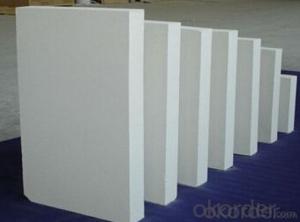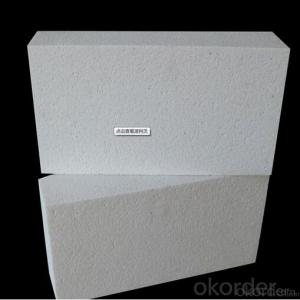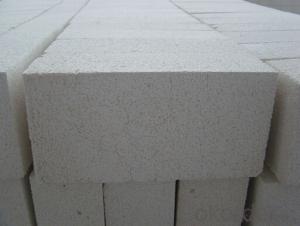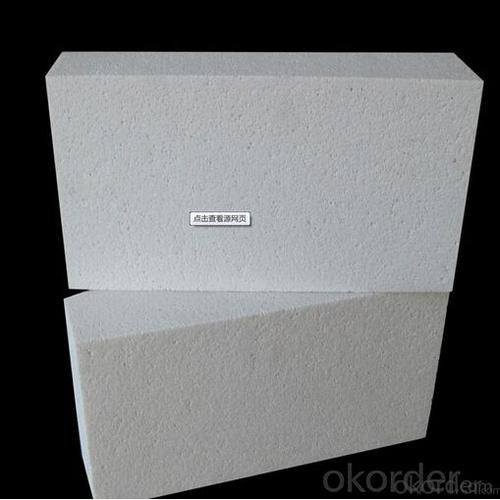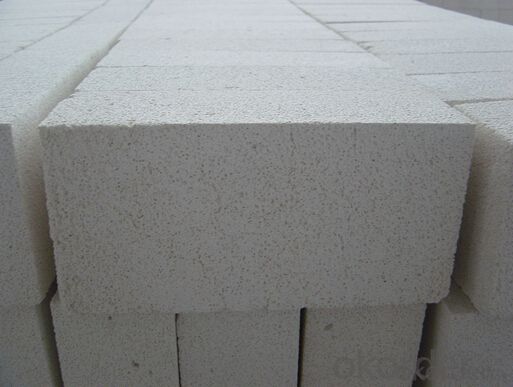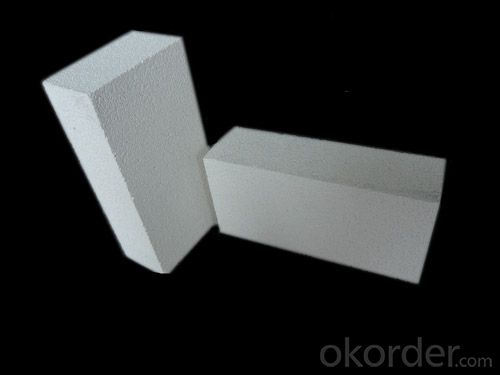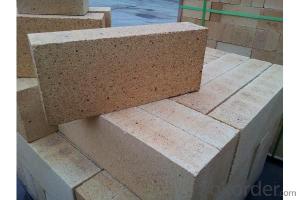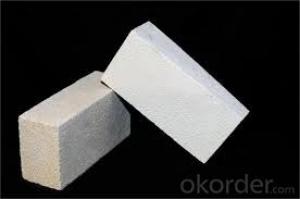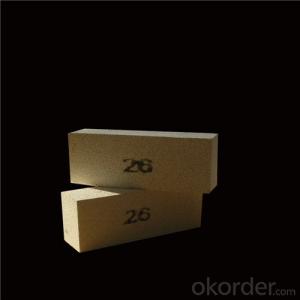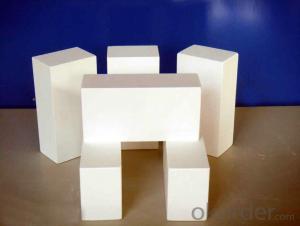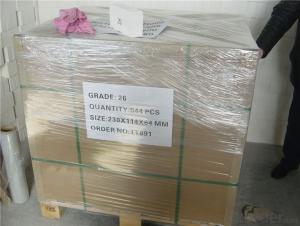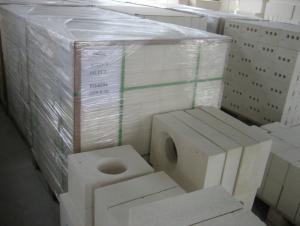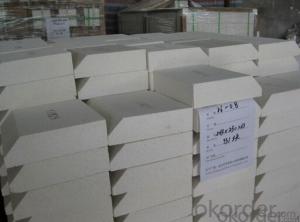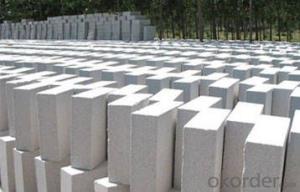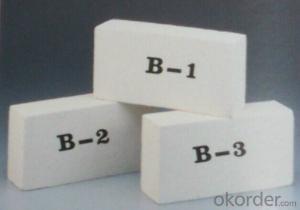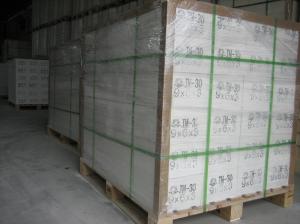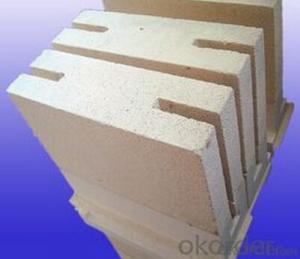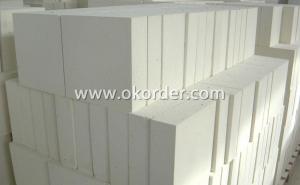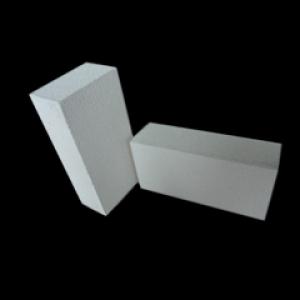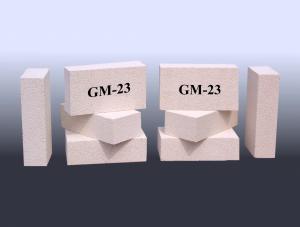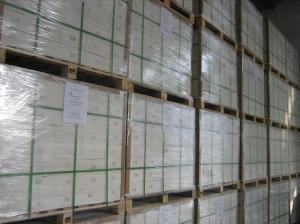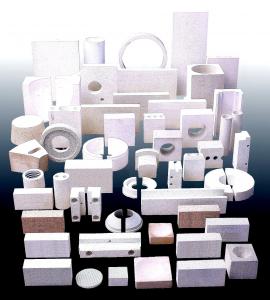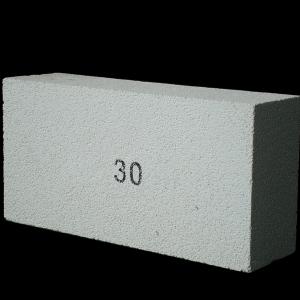Insulating Fire Brick - Refractory Mullite GJM 23
- Loading Port:
- Shanghai
- Payment Terms:
- TT OR LC
- Min Order Qty:
- 5000 kg
- Supply Capability:
- 1000000 kg/month
OKorder Service Pledge
OKorder Financial Service
You Might Also Like
OKORDER Series Insulating Bricks
OKORDER series insulating bricks are a kind of highly efficient, energy saving, low-carbon, environmental protection advanced products which are manufactured according to ASTM standard. OKORDER series products are the best lining and insulation materials in all types of industrial furnaces in the field of Metallurgy, Aluminum, Petrochemical, Ceramics, Power and Glass. They can be applied as heat insulation or no-melt erosion parts of the working layer. The products have been widely used in the following furnaces and achieved satisfactory results.
Application of Insulating Bricks
Metallurgy industry: Blast furnace, Hot blast stove, Reheating furnace, etc.
Petrochemical industry: Ethylene cracking furnace, Hydrogen production furnace, Primary reformer furnace, Reheating furnace, etc.
Ceramics Industry: Roller kiln, Pusher kiln, etc.
Glass industry: Glass furnace regenerator, etc.
Carbon Industry: Carbon roaster, etc.
Aluminum electrolytic industry: aluminum reduction cells,etc.
Other industries: Tunnel kiln, Shuttle kiln, etc.
Advantages of Insulating Bricks
Low Thermal Conductivity: More porosity brings excellent insulation effect, energy saving.
High Crushing Strength: High crushing strength under thermal state, volume stability.
Low Heat Storage: Little thermal storage when absorb more heat, energy saving effect is obvious.
High Purity: Low content of iron, alkaline and metal impurities.
Accurate Dimension: Precise brick size by machining, cutting and grinding special shapes, expediting bricklaying.
Picture of Insulating Bricks
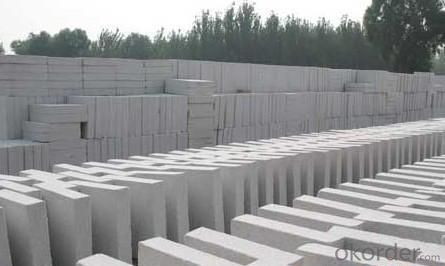
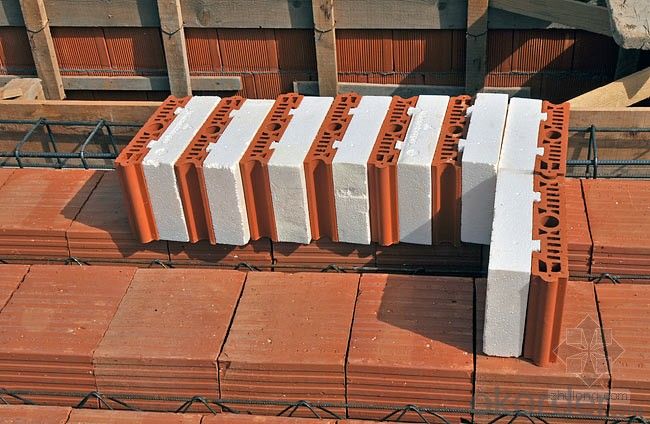
FAQ
1. Which products do you have?
We have all kinds of refractory brick, castable, mortar, cement, ceramic fiber products, etc.
Or you could browse our products to choose what you need.
2. How do you control the products quality?
With strict quality control system throughout the materials selection and production process, our refractory and ceramic fiber products quality is effectively controlled to meet customer requirements.
From the raw materials selecting, our quality control begin. The quality certificates of raw materials are required and each batch will be tested before using. During production, the quality control are conducted by workers and then each piece will be sorted and examined by quality supervise.
3. Can you give me a brief introduction of the application of your products?
We are mainly specializing in the refractory materials in iron and steel, cement, glass, ceramics, petrochemical, electric power Industry, etc.
4. If I need your offer, what information do you need?
In order to choose suitable products, it will be appreciated to provide us the information, such us specification, technical data, order quantity, products application etc.
If any question, please contact us freely.
- Q: Can insulating fire bricks be used in refractory linings for boilers?
- Insulating fire bricks have the potential to be utilized in boiler refractory linings. They possess a specific design that enables them to exhibit low thermal conductivity, rendering them suitable for situations that necessitate heat insulation. Within boiler systems, insulating fire bricks may be employed to construct linings for the combustion chamber's walls, roof, and floor, as well as the flue gas passages. By implementing insulating fire bricks in these regions, the boiler's heat loss can be minimized, subsequently enhancing energy efficiency. Furthermore, insulating fire bricks are characterized by their lightweight nature and ease of installation, making them a convenient option for boiler refractory linings.
- Q: Are insulating fire bricks suitable for use in kilns?
- Yes, insulating fire bricks are suitable for use in kilns. Insulating fire bricks are specifically designed to withstand high temperatures and provide excellent insulation properties. They are made from lightweight materials that have low thermal conductivity, allowing them to retain heat efficiently and reduce heat loss. This makes them ideal for lining kilns as they help to maintain consistent and controlled temperatures, improving energy efficiency and reducing fuel consumption. Additionally, insulating fire bricks have good resistance to thermal shock, meaning they can withstand rapid and extreme temperature changes without cracking or breaking. Overall, insulating fire bricks are a reliable and effective choice for kiln linings, ensuring optimal performance and prolonging the lifespan of the kiln.
- Q: Do insulating fire bricks have a low thermal conductivity?
- Insulating fire bricks possess a low thermal conductivity, rendering them ideal for applications necessitating thermal insulation. These bricks are specially crafted to minimize heat transfer. In comparison to traditional fire bricks, insulating fire bricks exhibit lower density and higher porosity, thus aiding in diminishing heat flow through conduction. With their low thermal conductivity, these bricks function as efficient barriers against heat transfer, ensuring cooler surrounding regions and heightened energy efficiency.
- Q: Can insulating fire bricks be used in wood-fired kilns?
- Yes, insulating fire bricks can be used in wood-fired kilns. These bricks are designed to withstand high temperatures and provide excellent insulation, making them ideal for wood-fired kilns. They help to retain heat and distribute it evenly throughout the kiln, ensuring efficient and consistent firing of the wood. Additionally, insulating fire bricks are lightweight, which can aid in the construction and maintenance of the kiln. Overall, using insulating fire bricks in wood-fired kilns can enhance their performance and efficiency.
- Q: Are insulating fire bricks suitable for insulation in chemical reactors?
- Yes, insulating fire bricks are suitable for insulation in chemical reactors. These bricks are made of lightweight materials such as clay and have a high insulating property, which helps to minimize heat loss and maintain stable temperatures inside the reactor. Additionally, they are resistant to thermal shock and can withstand high temperatures, making them an ideal choice for insulation in chemical reactors.
- Q: Are insulating fire bricks resistant to oil or chemical spills?
- Insulating fire bricks lack resistance to oil or chemical spills in general. Their main purpose is to endure high temperatures and offer insulation in various settings, such as furnaces, kilns, and fireplaces. Despite their efficient handling of heat and thermal shock, these bricks are typically composed of materials like clay, alumina, or silica, which do not possess inherent resistance to oil or chemicals. In the event of exposure to oil or chemical spills, these bricks may absorb the substances, potentially resulting in degradation or diminished performance over time. Hence, if oil or chemical resistance is a crucial requirement, it is advisable to explore alternative materials explicitly designed for such applications.
- Q: Can insulating fire bricks be used in chimney construction?
- Yes, insulating fire bricks can be used in chimney construction. These bricks have high heat resistance and low thermal conductivity, making them suitable for lining chimneys and other high-temperature applications. They help to insulate the chimney and prevent excessive heat transfer, reducing the risk of structural damage and improving energy efficiency.
- Q: Can insulating fire bricks be used as a lining for kiln cars?
- Indeed, insulating fire bricks exhibit remarkable thermal insulation qualities, rendering them appropriate for utilization as linings in kiln cars. These bricks are specifically engineered to withstand elevated temperatures without experiencing any fractures or disintegration, thereby establishing them as an optimal option for securing kiln cars. Furthermore, their lightweight composition facilitates convenient handling and installation, thereby diminishing the overall weight and energy consumption of the kiln. Consequently, insulating fire bricks effectively supply insulation and safeguard kiln cars, significantly enhancing their efficiency and longevity.
- Q: What is the typical thermal diffusivity of an insulating fire brick?
- The typical thermal diffusivity of an insulating fire brick is around 0.1 to 0.5 mm²/s.
- Q: Do insulating fire bricks require any special insulation blankets or jackets?
- Insulating fire bricks (IFBs) possess exceptional insulating properties, rendering them generally exempt from the need for specialized insulation blankets or jackets. However, in certain circumstances and environments, supplementary insulation may prove necessary. In cases where IFBs are subjected to high temperatures or extreme thermal conditions, the utilization of insulation blankets or jackets can prove advantageous, augmenting insulation capabilities and safeguarding against damage. These supplementary insulation materials serve to diminish heat loss, heighten energy efficiency, and prolong the lifespan of IFBs. Consequently, although not invariably essential, it is worthwhile contemplating the implementation of insulation blankets or jackets in specific scenarios to optimize the performance of insulating fire bricks.
Send your message to us
Insulating Fire Brick - Refractory Mullite GJM 23
- Loading Port:
- Shanghai
- Payment Terms:
- TT OR LC
- Min Order Qty:
- 5000 kg
- Supply Capability:
- 1000000 kg/month
OKorder Service Pledge
OKorder Financial Service
Similar products
Hot products
Hot Searches
Related keywords
